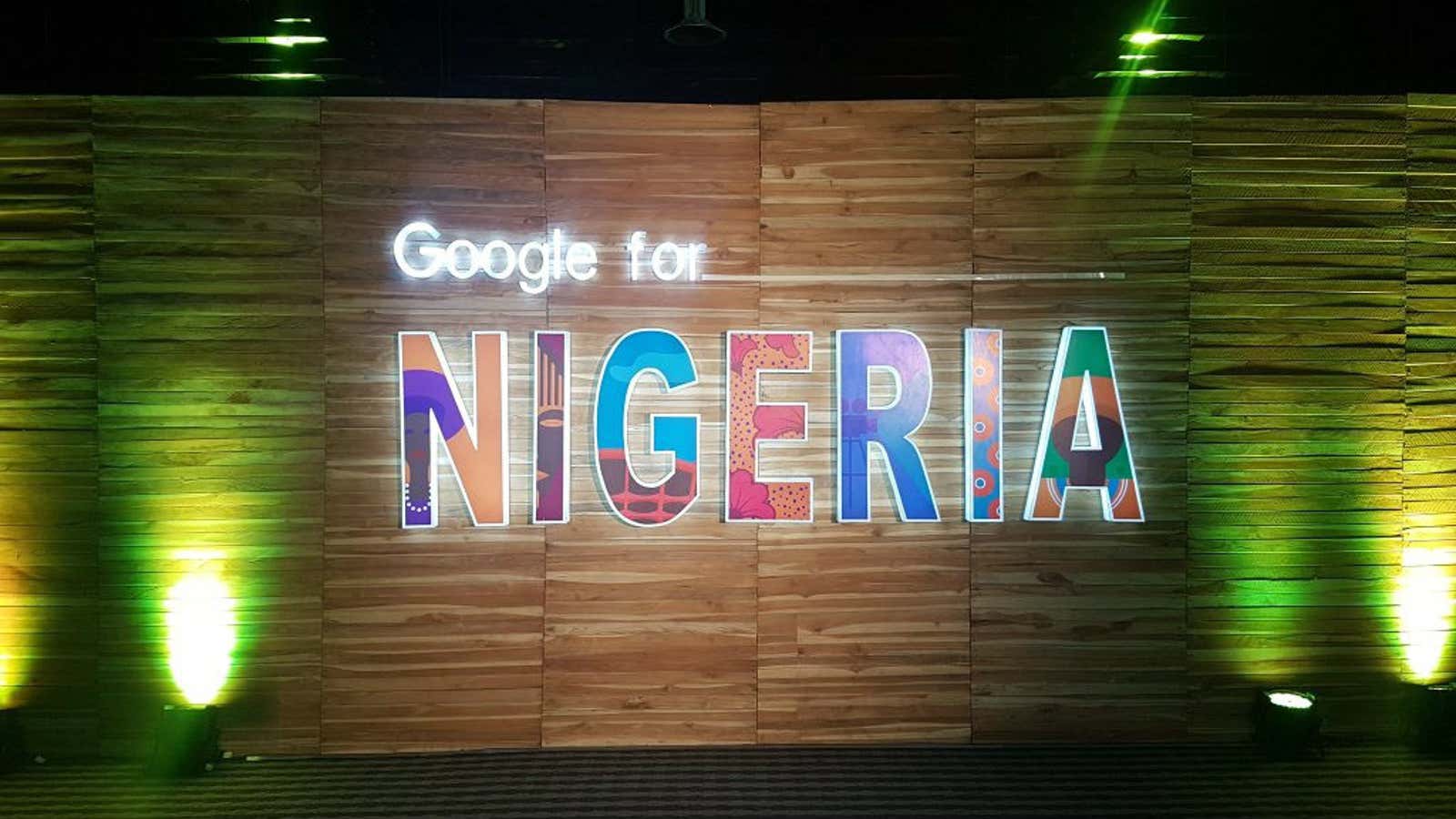On his first visit to Nigeria, Sundar Pichai, CEO of Google, came bearing gifts.
Pichai attended a Google For Nigeria event in Lagos yesterday (July 27) as the company launched a range of new products, including YouTube Go, an “offline first” version of the video sharing platform for users with slow internet connections. YouTube Go will allow users preview and download videos, rather than stream, and essentially save on data costs.
Nigerian video content, led by the burgeoning Nollywood film industry and ‘Afrobeats’ pop stars, is extremely popular, but with slow and expensive internet access, some Nigerians limit their online viewing to the workplace where connections might be better according to executives at online video companies like IrokoTV.
It’s certainly not lacking in potential. Even though Nigeria’s internet subscriber base has shrunk over the past year due to a regulatory clampdown on unregistered sim cards, the country still has over 91 million mobile internet users, according to regulators. However, that vast user base is largely undermined by unreliable connections across the country. Nigeria has some of the slowest internet speeds of the major economies in Africa. Google is betting on its new data-friendly version of YouTube to help local users navigate that problem. Nigeria will become the second country where the app been launched after a beta launch later this year. YouTube Go was first launched in India in April.
For the last few years there has been plenty of hype about the possible impact of internet access throughout Africa, particularly as mobile phone usage, and then smartphone use, grew rapidly. But it is only in the last two years that the world’s biggest tech leaders have visited to see the potential for themselves. Microsoft CEO Satya Nadella launched Windows 10 in Nairobi in July 2015, while Facebook’s Mark Zuckerberg had high profile visits to Lagos and Nairobi last year. Last week, Alibaba CEO Jack Ma touched down in Nairobi and Kigali.
Local startup founders and investors will hope these high profile visits will help drive interest in their tech ecosystems beyond being seen as experimental or just for social impact enterprises.
Google is also deepening its product offering in Nigeria including improving its Maps service which has seen Nigerian user numbers double in the past year. As an added feature for Maps, Google announced the launch of its Street View product in Lagos which allows users to virtually view “10,000 kilometers of imagery” across the city.
Pichai said his company is also trying to plug the crucial funding and skills gap on the continent. Google has committed $20 million in grants to “high impact non-profits” in Africa over the next few years. Google will also provide $3 million in equity-free funding to African entrepreneurs and open its first Google Launchpad Space outside the United States in Lagos this year.
In addition, Pichai said, Google will train over 100,000 software developers across the continent, with an initial focus on Nigeria, Kenya and South Africa. The training sessions will also be offered in local languages including Swahili, Hausa and Zulu and 40% of trainees will be women.
